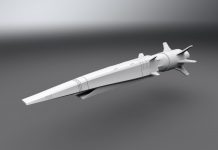
At the heart of England’s industrial north — where steel once powered a nation’s rise — a new era is underway. Sheffield, a city renowned for its manufacturing prowess, is experiencing a rebirth as a center of innovation with the opening of a cutting-edge artillery factory by BAE Systems.
Unveiled on June 12, 2025, the 94,000-square-foot site is poised to become a key production hub for British artillery, turning out M777 lightweight towed howitzers and creating 200 high-skilled jobs in the process. Operations are expected to be up and running by year’s end, delivering a significant boost to South Yorkshire’s economy and strengthening the UK’s defense industrial base.
The factory’s opening resonates far beyond Sheffield’s borders. UK Defence Secretary John Healey called it “a major step forward for South Yorkshire and for strengthening our British defense industry.” In a statement, he stressed that the move aligns with the government’s Plan for Change — reflecting confidence in the UK’s ability to produce high-caliber equipment while securing well-paying jobs.
This expansion comes at a moment when many Western governments are assessing their defense capabilities in response to growing tensions stemming from the conflict in Ukraine and geopolitical pressures in the Indo-Pacific. The UK’s investment signals its continued role as a strong NATO ally, alongside the United States, in collective defense.
The M777, which forms the backbone of production at the new plant, is a battle-tested artillery piece renowned for its lightweight design and adaptability in the field. Weighing just 9,300 lbs, the M777 can be airlifted and towed across difficult terrain — a key advantage over heavier, less flexible systems. Its 155mm barrel can reach targets up to 25 miles away, employing both standard and precision-guided munitions, adding powerful fire support when and where it’s needed.
Originally introduced by BAE in 2005, the M777 has been used by US, Canadian, and Australian forces in Afghanistan and Iraq. Its lightweight structure, made from a combination of titanium and aluminum, allows for greater mobility, setting it apart from competing artillery such as Russia’s 2A65 Msta-B. The M777’s ease of transport by helicopter makes it a preferred tool for expeditionary operations — although it does require a trained crew due to its towed configuration. The US Marine Corps currently operates over 500 of these howitzers and frequently utilizes them in challenging environments.
While the M777 stands strong against many competing platforms, there are growing pressures from new artillery technologies, including the Chinese AH-4 — which offers a similar lightweight profile — and the Russian 2S19 Msta-S, a heavy, self-propelled counterpart. Rising players, such as India’s ATAGS, add additional competition, reflecting a market that is both fiercely competitive and constantly evolving.
For BAE, choosing Sheffield to produce these weapons signals a clear strategic intent: retaining its ability to produce key artillery while retaining the agility to adapt for future innovations. The plant’s sophisticated equipment — automated production lines and precision-engineered tools — guarantees high standards of production and sets the stage for further advancements in artillery design.
Local officials and community members alike have recognized the significance of this new investment. The region, which fell into decline following the downturn of its traditional steel industry, is poised for renewal through high-skilled employment and related economic activity. The factory’s 200 new jobs — many requiring expertise in robotics and advanced manufacturing — represent a lifeline for a community eager for opportunity.
Furthermore, the project reflects a policy priority for the UK government: strengthening its own defense industrial base to reduce reliance on external suppliers — a vulnerability made clear by disrupted chains of delivery and growing geopolitical tensions. The conflict in Ukraine, now in its third year, highlights the necessity for a robust, adaptable production capacity for artillery, both for the UK’s own stocks and for its NATO allies.
BAE Systems — a major international defense manufacturer with annual revenues exceeding $25 billion — operates in more than 40 countries and directly contributes to the delivery of fighter jets, naval ships, and artillery components for many of its partners. The opening of its Sheffield plant forms a key piece of its multiyear strategy to modernize its production capabilities.
The M777’s operational track record underscores its continued utility. During operations in Afghanistan, US Marines used the howitzer to provide accurate fire support against Taliban positions, employing its digital fire control alongside GPS-guided munitions for maximum effect. In Ukraine, the M777’s ability to respond quickly and accurately under pressure — while retaining its lightweight form — made it a valued asset for Kyiv’s artillery formations. Nonetheless, the towed platform’s vulnerability to counter-battery fire and its lack of heavy armor highlight its weaknesses alongside its many strengths.
Compared to its international competitors, the M777 maintains a strong reputation for its combination of range, maneuverability, and ease of maintenance — but there’s growing competition from other lightweight and heavy artillery. The ability of the Sheffield factory to adapt its production to account for changing requirements and innovations will be a key factor in its ongoing competitiveness.
The new facility also carries a deep significance for the community. Local workers appreciate the opportunity for training and employment that comes alongside a growing high-tech industry. The 22-year-old apprentice who described the opportunity as a “game-changer” for his future encapsulates the hope that this venture brings to South Yorkshire — a place eager for renewal after decades of industrial decline.
Through its training programs and education initiatives, BAE is helping foster a new generation of skilled workers, strengthening both its own future and the UK’s industrial base. This approach resonates with the government’s policy goals, which aim to align defense investment with employment and education.
Some have raised questions about the policy priorities in a climate where funding for health care and education is scarce. Supporters, meanwhile, view this investment as a powerful stimulus for the UK’s industrial renewal and a way to enable greater strategic independence.
Turning to export opportunities, the M777’s international appeal — with sales to countries ranging from India (with over 140 units) to Saudi Arabia — underscores its role in strengthening the UK’s financial position while fueling controversy over human rights implications. Furthermore, growing interest in Southeast Asia signals additional potential for future sales, adding to the UK’s export portfolio.
Scaling up production will pose its own set of challenges, requiring careful coordination with suppliers, many of whom are still wrestling with ongoing disruptions stemming from the COVID-19 pandemic. The shortage of skilled labor further adds pressure, forcing companies like BAE to compete with growing sectors, from technology to green energy, for a limited pool of talent.
Rising energy prices amid a European energy crisis may further undermine operations, although government subsidies may ease the financial pressures. In the long term, the factory’s ability to produce high-caliber artillery at scale — while staying within budget — will determine its ultimate success.
The Sheffield facility also serves as a testbed for future innovations in artillery. Modern wars increasingly rely on the ability to network artillery with drones, sensors, and automated control systems. BAE’s ongoing investment in technologies like its Archer self-propelled howitzer signals its intent to remain at the cutting edge of this transformation.
While the M777 may need further upgrades to keep up with a changing battlefield, the flexible design of the new factory allows for adaptation, ensuring its continued competitiveness.
This transformation resonates far beyond South Yorkshire — reflecting a delicate balance many nations face today: strengthening their defenses while fostering economic renewal. The US, which spends over $800 billion on its military each year, finds itself wrestling with many of the same policy questions. Cities with a rich industrial past, like Detroit or Pittsburgh, may view Sheffield’s renewal as a template for their own futures. The M777’s ongoing role in NATO operations further underscores the growing interdependence within the alliance.
As the year moves forward, all eyes will be on Sheffield — to see whether it can realize its potential. The city’s industrial heritage, forged by hard-working people and an ability to adapt to changing circumstances, forms a strong foundation for whatever comes next.
For both BAE and the UK government, this venture is a bold affirmation that defense manufacturing can be a powerful engine for renewal — securing both the country’s safety and its future.




